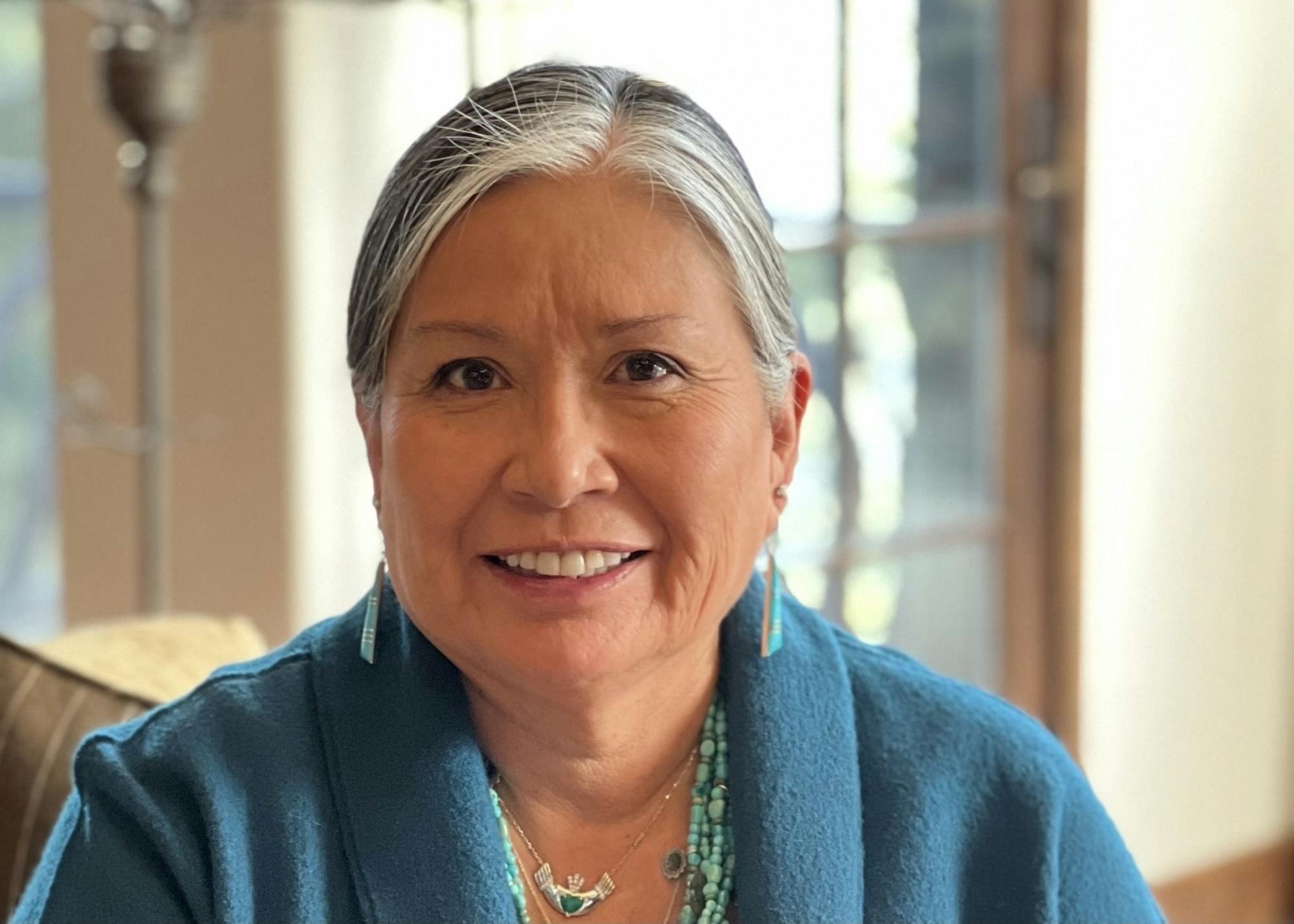In early May, Mabelle Drake Hueston ’86 was appointed as the new assistant director of the College’s Native American Program, which supports Native students at Dartmouth. Hueston sat down with The Dartmouth to discuss her experiences as a Native student and alumna, her previous work with the Alumni Council and her hopes for her new role.
Can you talk about your own experiences as a Native American student at Dartmouth?
MDH: I come from a small community in southern Utah, which is part of the Navajo reservation, and I was pretty excited to come to Dartmouth. Once I got here, I worked hard and kept my head down. By the start of winter break, though, I was ready to go home and stay home; I was miserable. There was an onslaught of not only cultural differences — more than that, I was exhausted. Having to learn how to read and write better in English — instead of speaking primarily Navajo — was very difficult. I really, truly thought my high school classmates had a better situation than I did. But, when I started hearing about some of those same classmates making very poor choices and dropping out of school, I couldn’t understand it. I soon realized that my initial discomfort at Dartmouth was what made me work harder. With all the resources at the College supporting me, it became enough to help me graduate and later succeed in life.
You’ve previously held several alumni positions at the College — including Alumni Council member, Tucker Foundation Board of Visitors member and Native American Visiting Committee chair. Could you talk about your career path and how you got to where you are now?
MDH: The reason I applied for this job is because of all those volunteer committees that I previously sat on. Since arriving back on campus, I’ve realized that Dartmouth has a very short institutional memory — not just in the Native American Program office, but campus-wide. When I graduated, I left Dartmouth knowing that I would always be supporting the students, especially the Native American students. And because of that, I kept myself engaged. Particularly, I found my committee position with the William Jewett Tucker Center really helpful, because it allowed me to meet other alumni with a passion for social justice. These service-oriented men always seemed to have the best interests of the students in mind; they were a great influence on me. As both a woman and Native American alumna , serving on the Dartmouth Alumni Council was far more frustrating. There were a lot of vocal, older guys unhappy with the direction of the College. I realize now, in retrospect, they were afraid of change. But, I was empowered by the thought that I had paid just the same amount of tuition as they had. The College means just as much to me as it does to them, and my voice mattered.
Why did you gravitate towards the role of NAP assistant director?
MDH: I’ve been actively going through various scenarios of what I enjoy and what gives me passion. I asked myself what I would truly like to do, even if I wasn’t paid for it. I had been struggling: none of my previous hypothetical jobs gave me a similar level of excitement to the Native American Program. I’ve always wanted to be on campus. Coming back to Dartmouth is like coming home; it’s the place where I’m comfortable now. Coming back as a 58-year-old, 36 years after graduating, is incredible. My husband and I are having fun exploring Vermont. It’s a lot of fun.
Can you describe the role of the Native American Program at the College?
MDH: The Native American Program will always be a little different from all the other student service offices because of this unique relationship and cultural differences that Natives have in general in the United States. My task is to make sure that the students have the services that they need to become acclimated at Dartmouth as well as to be able to graduate; it’s as simple as that. I’m sure I could tell you why Native students will need a program like mine, but it’s really just the complexities in our cultures. It can make it very difficult for someone who’s Native or who is a part of Indigenous cultures to be here at the College. After a while, it becomes exhausting to explain who you are. And I felt like I had to do that a lot when I was at Dartmouth. It’s really annoying that my non-Native friends and classmates were never asked questions about who they were or why they were here. So, I think it’s nice to have someone in the community who doesn’t need to ask. The Native American Program is just here to focus on what everyone else has the privilege to focus on: your education. We almost become professors of our own culture because we have to spend so much time explaining ourselves to everyone.
What are the goals you hope to achieve in your new position?
MDH: We are definitely building this office. The Native American Program has not had a consistency in staffing for several years. Just by being here and being on campus and being visible, it is an improvement. I want to make sure this program has the mission of being a student affairs office that supports Native students. Ushering the students through Dartmouth and making sure the students stay true to themselves is important. Educational institutions, by design, were used to assimilate Natives. We’ve survived policies of assimilation and genocide in many North American governments and educational systems. I think the Native students here need to be supported as they change what they think about the educational system to be able to thrive in it. We are going to build a strong and purposeful program.
This interview has been edited for length and clarity.




